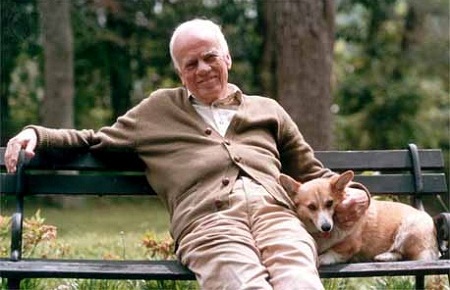Humanity: The Strangest Thing in the Cosmos
 Walker Percy
Walker Percy
Guided Tours:
Friday: 8:00PMSaturday: 12:30PM, 1:15PM, 7:00PM
Sunday: 12:00PM, 1:00 PM, 6:00PM, 7:00PM, 8:00PM
To dowload a flyer for this event:
Walker Percy's Enduring Fascination with the Human Person. From the introductory panel of the exhibit: Walker Percy was a prominent American novelist and essayist from the publication of his first novel, The Moviegoer, in 1961 to his selection as Jefferson Lecturer for the National Endowment for the Humanities in 1989, shortly before his death. Although not young when he published his first novel (Percy was 45), his rise to prominence was rapid after he succeeded in publishing his fiction. The Moviegoer won the National Book Award in 1962 and between 1966 and 1987 Percy wrote five more novels, all of which received critical acclaim. The success of his fiction also drew fresh attention to his essays, many of which had been written prior to The Moviegoer and he was soon to establish himself as an influential essayist as well.
Walker Percy’s work is difficult to classify and his quirky, unique style of constructing a novel was a factor in the surprise success of The Moviegoer – it was original, it worked, and it was hard to say why. He was a southerner and there were indeed southern subjects and themes in his work, but he was hard to label as a southern writer in that his particular philosophical concerns had no precedent in southern literature and his plots sometimes resembled those of Albert Camus more than those of William Faulkner. So was he an existentialist writer? Perhaps he was in that he sought to examine the predicament of the alienated person in the modern world, but he was also very funny and ultimately he was very hopeful – two terms that fail to describe the writing of Sartre and Camus. So was he a Catholic writer? Percy was a convert and remained a strong Catholic until his death, but any Catholic who picks up his novels expecting a simple affirmation of faith would most likely be baffled and confused. His main focus was on exploring the open-ended mystery of the human person and he did not seek to comfort believers or to proselytize.
Although there are many aspects of Percy’s writing that make his work attractive, his particular genius was that he could make you, his reader, feel a new fascination for the strangeness of your own being. If you engage Walker Percy’s work seriously, you are changed. You can no longer take for granted that you are a clearly defined being plugged into a world that more or less makes sense. You are aware that your humanity is indeed “the strangest object in the Cosmos” and the world around you is in many ways constructed to suffocate and avoid the questions that our being provokes.
As the exhibit will show, the insights that fill the pages of Percy’s work were not won lightly. He was a man who suffered a great deal in his youth and bore deep scars from the traumatic events that marked his adolescence. This suffering launched him on a quest for meaning that always remained personal, but broadened into an intense engagement with the dominant ideas and social currents of the twentieth century. He engaged his life and his time with a powerful intelligence, great courage and a sense of humor. His insights about what it is to be human in the modern world are always intertwined with an intense personal quest for meaning that make them all the more compelling.
Books by Walker Percy: The Moviegoer (1961), The Last Gentleman (1966), Love in the Ruins (1971), The Message in the Bottle (1975), Lancelot (1977), The Second Coming (1980), Lost in the Cosmos (1983), The Thanatos Syndrome (1987), Signposts in a Strange Land (assembled after his death in 1990, contains essays by the author).
 2014
2014 
















Reader Comments